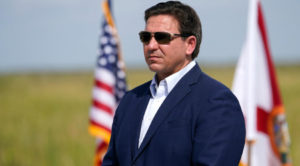Vivek Ramaswamy’s persistence in the 2024 race, despite the considerable lead of former President Donald Trump in primary polls, stems from his billionaire status and adept communication skills. While Ramaswamy’s polling might not be exceptional, it ensures his presence on the debate stage. Critics may label him a con man, but his emergence reflects the broader disillusionment with the corruption seen in both major parties within the DC swamp. The political landscape, characterized by the divide between rhetoric and action, has allowed figures like Donald Trump and Vivek Ramaswamy to gain traction.
Controversy has arisen around Vice President Mike Pence’s actions on January 6 and the debate over whether he should have certified the election results. While not delving into that debate, it’s worth noting that even Ramaswamy believes he would have certified the 2020 results. However, he critiques Pence for missing an opportunity to leverage the situation for passing critical election integrity reforms. Ramaswamy envisions a scenario where the vice president could have united the country by prioritizing both secure elections and a peaceful transfer of power.
Ramaswamy’s proposed approach involves implementing election reforms through Congress before certifying the election results. He envisions a set of measures including single-day voting on Election Day, paper ballots, and government-issued IDs matching the voter file. He acknowledges that his suggested path might seem idealistic in hindsight, as the political climate at the time was marked by Democratic resistance. Achieving bipartisan consensus on such reforms would have been a challenging task, particularly given the polarized landscape.
While Ramaswamy’s election integrity reforms hold merit, it’s important to acknowledge the practical obstacles to their implementation within the context of the 2020 election. Unlike the 2000 election, which revolved around a razor-thin margin and a specific state, the dynamics were significantly more complex in 2020. Rather than dwelling on what could have been, a more pragmatic approach would be to focus on the upcoming election and the tangible actions required to secure a victory.
In conclusion, Ramaswamy’s proposal for election integrity reforms presents an intriguing concept, but the feasibility of its execution within the 2020 election context remains uncertain. Rather than speculating on past events, the emphasis should shift toward the future, where efforts to secure electoral processes and win upcoming elections take precedence.





